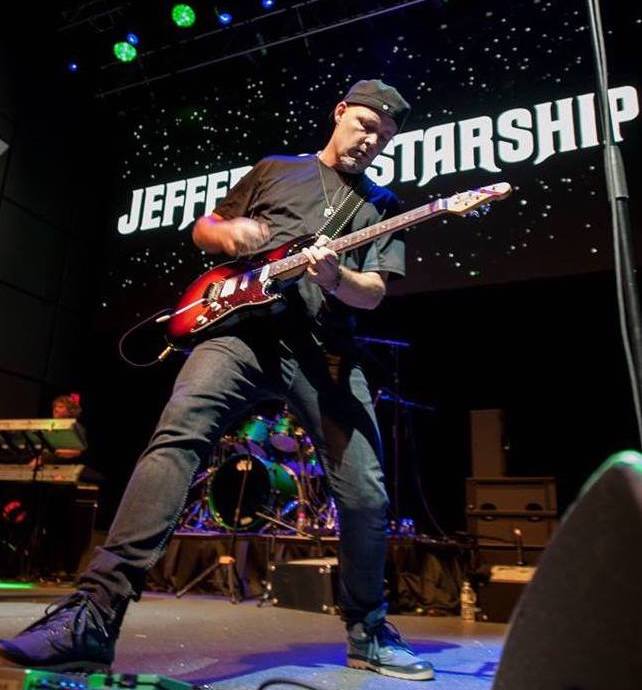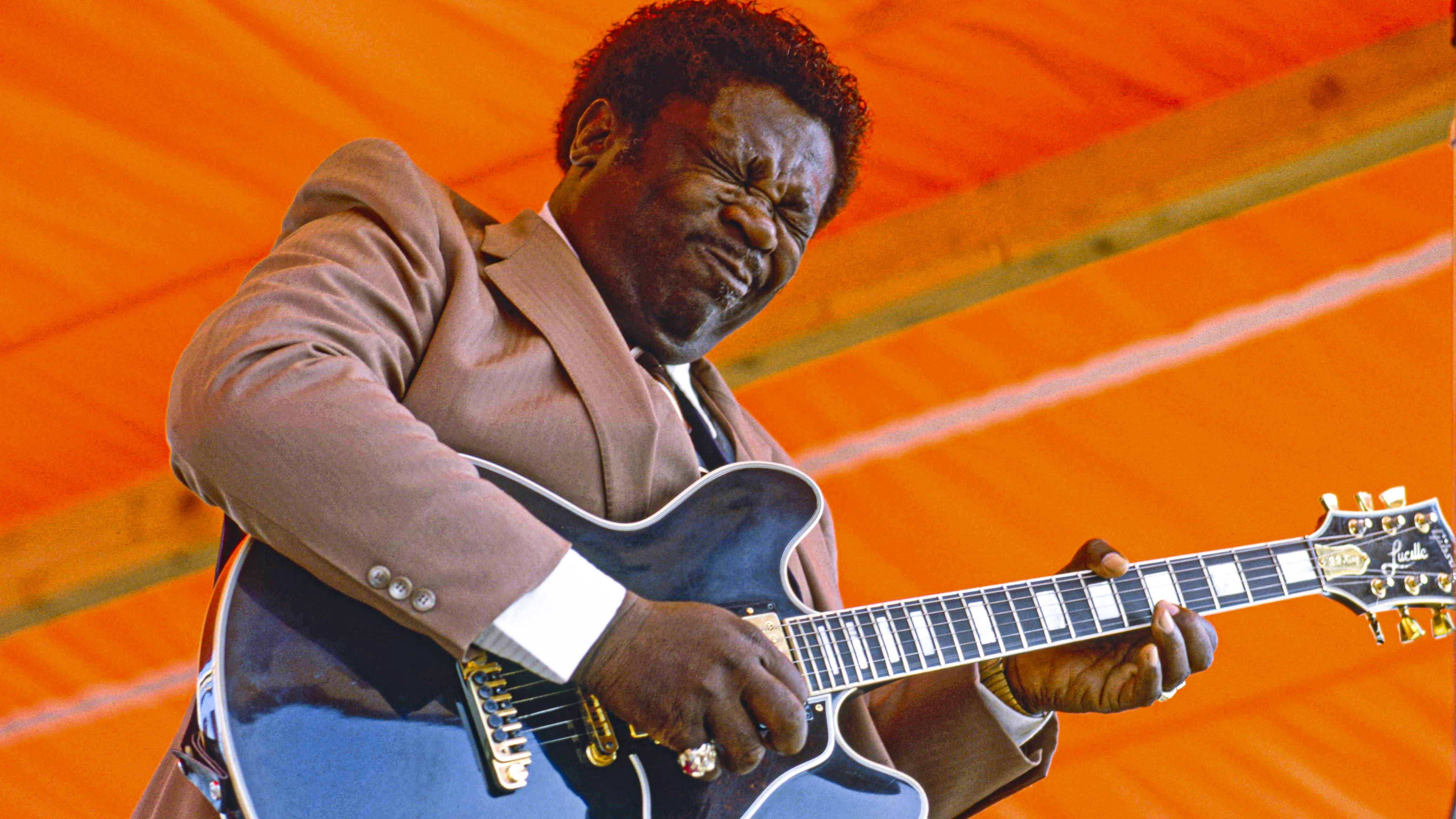"Sometimes, when I play through a huge stack, I’m like, ‘Holy sh*t – the power!’ That's all great, but it tempts me into taking the easy way out instead of trying to find the perfect part”: Marnie Stern on tapping, modding, and finding your own voice

All the latest guitar news, interviews, lessons, reviews, deals and more, direct to your inbox!
You are now subscribed
Your newsletter sign-up was successful
This feature was originally published in the January 2008 issue of Guitar Player.
“A lot of people say I’m a shredder,” says Marnie Stern. “But I’m not sure if I really am one. I’ve never done a solo in my life. Everything I do is fully composed and layered to go with the song.”
That’s just another reminder that whatever constitutes shred lies in the ears of the beholder. Stern’s tone and riffs are certainly too colorful, unselfconscious, and rough around the edges to fit the steroidal, flex-your-pinky-muscles-and-show-off-your-chops-at-Guitar-Center definition of shred. Plus, the trippy rock tunes on her debut album, In Advance of the Broken Arm, are not remotely metal.
But, because Stern displays some markedly shredder-like traits – she practices nearly every waking hour, plays fast flurries of notes, and probably knows more tapping techniques than Eddie Van Halen and Gregory Hines combined – it’s easy to forgive people for painting her with the shred brush.
In addition, many of the guitarist’s songs are so stacked with imbricate lead lines and sixteenth-note tapped riffs, they buzz like beehives (“There are a jet-load of layers on each song,” she says). Others have a frantic, yet charmed quality to them – like the sound of several MySpace pages open at once, miraculously playing in harmony with each other. What holds it all together?
“Sometimes, I’ll do a really basic guitar line, add guitar parts on top of it, and then take away the basic guitar line, so I’m just left with all the other parts,” shares Stern. “With the main part missing, it sounds more interesting. It’s technical and noisy, but it’s also melodic. A lot of my songs really are pop songs underneath all the goop.”
Despite having decent Pro Tools chops and a tangle of studio cabling so thick she can barely see the floor of her Upper East Side rent-controlled apartment, Stern jokes that when it comes to gear, she is afflicted with a bizarre form of Attention Deficit Disorder.
All the latest guitar news, interviews, lessons, reviews, deals and more, direct to your inbox!
“I have an absurd amount of patience to sit and play guitar, but, oddly, I don’t have any patience to twiddle with knobs,” she says. “The most technical thing I ever did was solder a pickup in my guitar, and I felt so cool afterwards. But then it broke again, and I took it in to the shop to get it fixed. When I picked it up, they said, ‘Did a blind person work on this guitar?'”
When you’re trying to accent a lot of notes at once, you want the tone to be clear
Whether Stern is playing the reissue Fender Jazzmaster she wore out on her recent U.S. and U.K. tours (“that guitar is done”), her Epiphone doubleneck, or her new injection-molded Flaxwood guitars (most strung with D’Addario strings, gauged .010-.046), her sound is never very distorted.
“When you’re trying to accent a lot of notes at once, you want the tone to be clear,” says Stern, who eschews high-gain rigs in favor of a beat-up old Fender Deluxe Reverb overdriven by a SansAmp GT2 pedal (which she also uses as an amp/cab simulator for direct tracking).
“Sometimes, when I’m practicing with a band, I’ll find myself playing through someone’s huge stack, and I’m like, ‘Holy shit – the power!’ That power is all fun and great, but I find it tempts me into taking the easy way out when I’m putting together a song, instead of trying to find the perfect part.”

The most striking parts of Stern’s style are her aggressive and widely varied tapping approaches. “I tap with my picking hand’s middle finger,” says Stern. “Sometimes, in pictures, I look like I’m flipping off the crowd. My tapping hand floats in the air while my arm rests on top of the guitar body for balance and control.”
With the pure, joyful, and decidedly non-shredder-like inspiration Stern takes from tapping, she may be poised to make the oft-lambasted hair-metal cliché cool in hipster music circles for the first time since the mid-’80s.
This is a bit ironic when you consider that, despite countless comparisons to Eddie Van Halen, Stern has never listened to the tapping pioneer. Stern arrived at EVH’s signature technique through the back door, via the warped instrumentals of Pennsylvania stunt rockers Don Caballero.
“It’s sort of like a game of telephone,” says Stern. “It goes from one generation to the next, and then it comes out in this weird form years later.
“I used to listen to Don Cab and think, ‘How are they doing that?’ Then, I caught a video of them playing, and I saw that [guitarist] Ian Williams had both hands on the neck. At that point, I still hadn’t formulated what tapping was, but I soon started experimenting, figuring things out, and building on the technique.”
It was after graduating from NYU in 1996 (with a degree in journalism) that Stern had time to evolve her style and perform regularly. Her career got a welcome boost when she sent an unsolicited demo to Kill Rock Stars, and, much to her surprise, the respected alt-rock label not only listened to her submission, they signed her on the spot.
“I’ve been trucking along for a long time, but I’ve never really been part of any one clique,” says Stern. “I think not being in any one scene really helped me, because I was forced to just do it all by myself.
“Obviously, when you’re without other people, you come up with your own individual style. Many great writers say you have to steal in order to get good, but I believe it’s important to not learn other people’s stuff. Then, you have to really try to form your own voice.”

Whether he’s interviewing great guitarists for Guitar Player magazine or on his respected podcast, No Guitar Is Safe – “The guitar show where guitar heroes plug in” – Jude Gold has been a passionate guitar journalist since 2001, when he became a full-time Guitar Player staff editor. In 2012, Jude became lead guitarist for iconic rock band Jefferson Starship, yet still has, in his role as Los Angeles Editor, continued to contribute regularly to all things Guitar Player. Watch Jude play guitar here.
